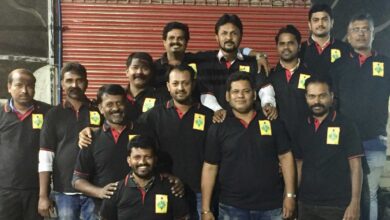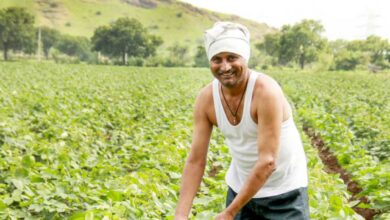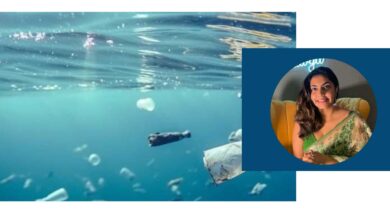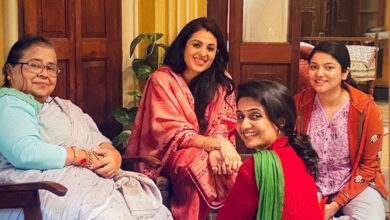Harvesting Water for Posterity
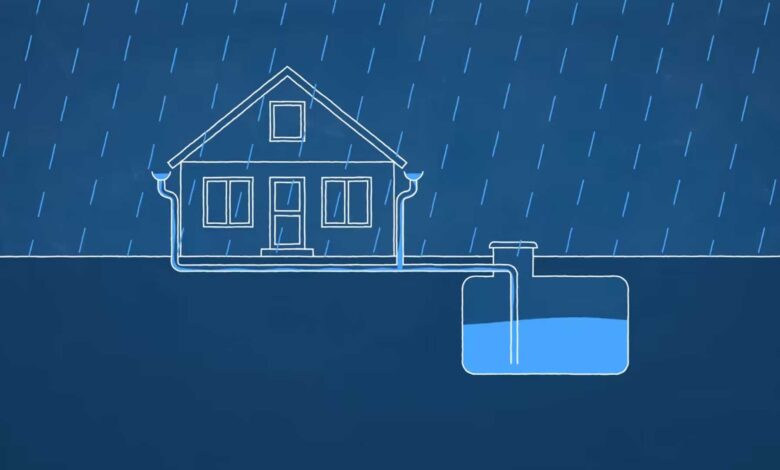
There is nothing as satisfying as bringing back water to the wells.
Kalpana Ramesh’s words mirror her abiding passion for the cause of water conservation. A Hyderabad-based Interior Designer and Architect, Kalpana transformed into a water conservation champion when the realisation struck about the extensive ill effects of resource mismanagement and apathy towards groundwater depletion and left a deep impact on her. T.S. Eliot, the famous American poet said, “Home is where one starts from.” True to these words, instead of succumbing to water tanker reliance like most urban residents, she built a sustainable home with a 25000-litre rainwater harvesting tank and greywater recycling capability. Starting the reforms at home, she steadily advanced changes to her residential colony, and the local community and then on to various projects at the district and state levels. Today Kalpana Ramesh and the social enterprise founded by her, The Rainwater Project, have more than 20 stepwell restorations, lake revivals, rainwater harvesting projects, hundreds of borewell rejuvenations and lakhs of litres of water saved to their credit. Collaborating with SAHE NGO (Society for Advancement of Human Endeavour) for various projects, Kalpana has pinned water conservation as an agenda on the sustainability measures roadmap of urban and rural Telangana.
Kalpana’s singular objective is to ensure that every drop of water, be it rainwater, water from
lakes, ponds, shallow and deep aquifers feeding stepwells and borewells respectively or
even recycled grey water, is saved, collected and added back to groundwater reserve. Her aim is to achieve water security by effecting a conscious shift or growth in the patterns of behaviour bringing about transformative change. Her sights are set firmly upon establishing a water-resilient future for the coming generations through astute actions and thought leadership. As part of the Blue Hyderabad initiative in collaboration with SAHE Hyderabad is mapped into 98 watersheds and the Hitec city watershed is the first to be focused upon to prevent urban floods and conserve groundwater. The grassroots approach adopted by her and mapping of water bodies and channels that are the lifeline of a city’s groundwater story creates awareness among communities regarding water scarcity, lake pollution with plastics and sewerage. These measures also stress the importance of water conservation, rainwater harvesting (RWH) and groundwater recharge through the restoration of water structures, lake revivals and simple RWH DIY techniques. These efforts towards groundwater improvement and water conservation can be replicated in other cities to create sustainable water-positive cities. Other initiatives led by Kalpana include ‘Save 10K bores’ and ‘Live the Lakes’, aimed at creating awareness and increasing civic & moral responsibility towards protecting water, and its sources and restoring them to their former glory.
Kalpana’s professional strategy to execute rainwater harvesting projects with the mission to increase groundwater levels progressed into large-scale stepwell restoration projects. Kalpana’s association with Hyderabad Design Forum (HDF), a guild of architects documenting the forgotten stepwells of Telangana, put her on the path to rediscovering the historical water structures that were once built to combat water scarcity in the arid region of the Deccan. Stepwells and wells act as vital collection points for rainwater and runoff discharge, working to replenish the underground aquifers after every rainfall. These traditional water structures were unfortunately neglected over the years and fell prey to rampant urbanisation and so- called modernisation. The socio-cultural relationship between the community and stepwells was destroyed due to the provision of water supply to homes. People stopped going to the wells to collect water and the stepwells lost their significance. Kalpana strongly believes that the stepwell’s critical role in aiding groundwater levels and their status as historical monuments that once acted as community centres should not be overlooked. The restoration of stepwells and their revival as social activity spaces where the local population celebrates festivals and conducts art and cultural events is Kalpana Ramesh’s brainchild. Her belief is that when these spaces are developed with the intention to propagate actions of cyclical quality, upkeep and sustainability will follow.
Bansilalpet stepwell has restored not just the local water security of the Bansilalpet area, but also the faith that Samooham (Community), Sarkar (Government) and Sansthaan (Social enterprise) can revive the much-needed restoration of such historical water structures bequeathed to us by our progressive ancestors.
The recently restored Bansilalpet stepwell is a fitting example of a holistic restoration project. Dumped with garbage and debris for over 4 decades, the beautiful 6-level stepwell adorned with carvings and stone mandapams was on the verge of being filled up and levelled into obscurity to accommodate a parking lot. Timely intervention and 11 months of hard work by The Rainwater Project ensured that the stepwell was restored to its past glory. Today the precinct is redeveloped with new roads and revamped utilities for the residents, befitting the tourist spot it has become. The tourist plaza and amphitheatre, adjoining the stepwell, house an interpretation centre that also doubles up as a performing arts arena. Baaram Baavi in Narayanpet is yet another success story for The Rainwater Project where the Bathukamma festival was organised at the stepwell grounds.
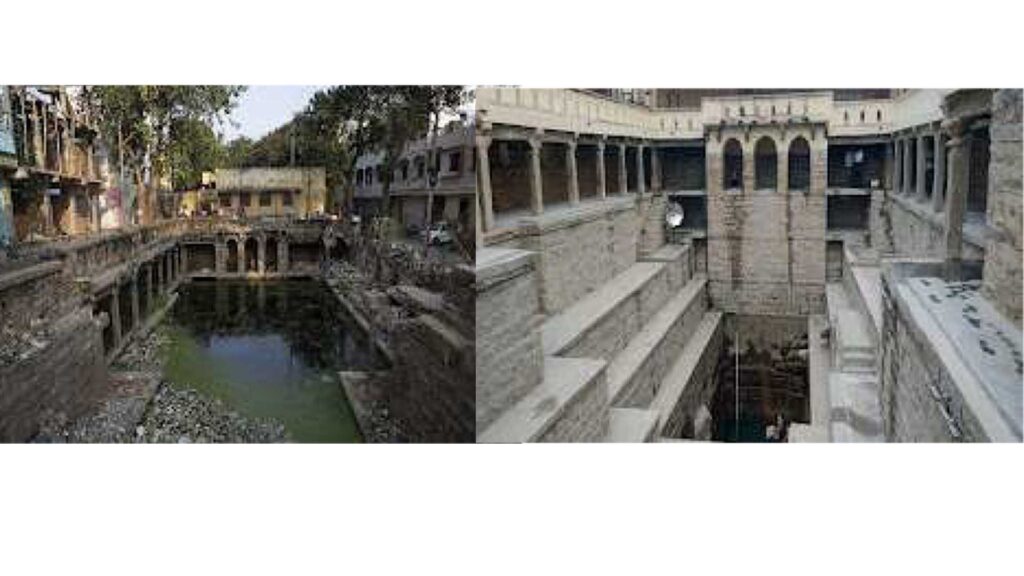
Kalpana’s vision of stepwell restorations integrating the traditional water structure into the community’s fabric sets sustainability into motion. These projects are carried to completion by adopting a three-pronged sustainable execution plan involving Government, Community and Social enterprise. The stepwell restoration scene has gained momentum and the Rainwater Project has been approached by district collectors, individuals, institutions and organisations with appeals to restore various stepwells. The prestigious Rashtrapati Nilayam stepwells, Bhiknoor temple stepwell, Lingampet stepwell, SBI staff training centre stepwells and the Osmania University stepwells are ongoing projects, while a few more like the Khammam stepwell, Gadwal stepwell and Falaknuma Bagh ki Baoli are ones in the pipeline.
Kalpana is recognised as a Water Hero by the Jal Shakti Ministry of India owing to her work in the water sustainability sector. Kalpana was also chosen as one of the seven women achievers who took over PM Modi’s social media accounts on Women’s Day in March 2020. Her commitment to the cause is accentuated by her unique ability to connect her profession and passion for water and environmental conservation. Kalpana’s resolve to create awareness among people and reconnect them to their water source, be it lakes, borewells, stepwells or rainwater harvesting measures is crucially timed. Today one out of ten persons do not have access to clean drinking water. By 2050 this number will climb to one in four. Grave predictions of falling water tables, polluted groundwater, drying up lakes and changing rainfall patterns all point to the need for imminent remedial action. Having witnessed the apathy that drives unsustainable water usage today and having executed effective solutions to overcome the existing issues, Kalpana asserts.
Mindful use of the finite resource, rainwater harvesting, reviving traditional water systems, rejuvenating dried-up borewells and revitalising lakes and catchment areas and spreading awareness is the way forward to establish water security in future.


